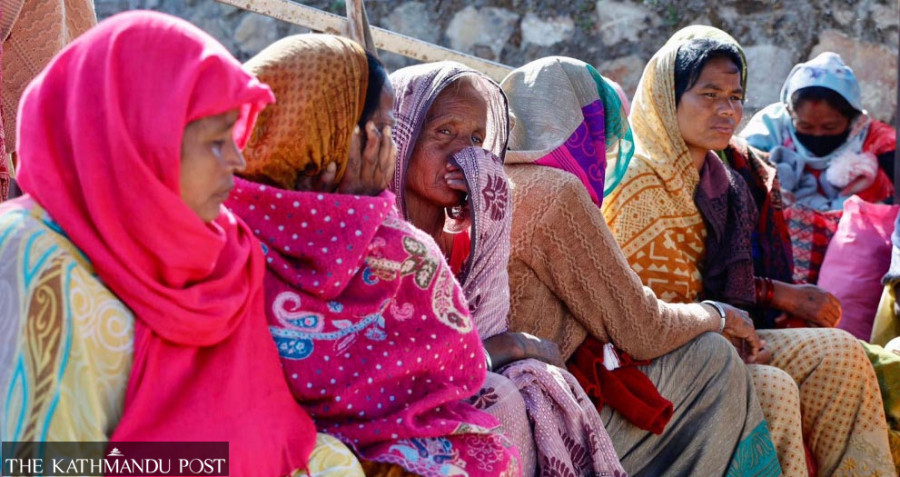Editorial
Don’t let them down
The loan sharking problem will not go away without addressing the financial vulnerabilities of the poor.
The government has shown a semblance of responsibility by introducing an ordinance to criminalise loan sharking, amending the Criminal (Code) Act-2017 as well as the Civil (Code) Act-2017 and Criminal Procedure (code) Act-2017. It should now ensure that the two houses of Parliament pass it within the 60-day deadline of its introduction. The ordinance has taken big steps to discourage the inappropriate lending that has led thousands of poor families across the country, especially in the southern plains of Tarai, into further poverty, distress and displacement from their homes. This is a crucial step to providing justice to the poor and often uneducated people who have faced multidimensional abuse from wealthy loan sharks. The ordinance itself, though, is only the first step in solving the loan sharking problem. The government must make sure that it is implemented in a way that solves the crisis facing the loanees.
Currently, the government seems to be oscillating between promising the victims justice and further victimising them. One day, Home Minister Narayan Kaji Shrestha promises to punish the culprits, and the next day he sends his forces to rain batons on the victims. It is this duplicity that worries the victims, as a group of them has stayed put in Kathmandu, vowing not to return home until their problems are solved for real. Aware of how political leadership and state mechanisms function and having seen that a promise made in September last year is yet to be implemented, the victims are in no mood to step back. This explains the deep hurt among those who have long been rendered helpless due to the state’s failure to give them a financial cushion and a social security net to fall back on.
Now that the government knows the victims hardly trust its promises, it should act swiftly to punish the guilty loan sharks. The state’s responsibility does not end with introducing an ordinance and making other policy-level changes. As per reports, the usurers have been harassing the borrowers who have returned home after their protests in Kathmandu. The sharks, who command political access and agency in local areas, have the wherewithal to use psychological pressure, even physical force, to harass the victims into repaying the debts. And as the state remains non-existent and inaccessible for the victims, the sharks find it easy to harass them. The state should, therefore, activate its security mechanisms in coordination with the local level to provide security to the loan shark victims at the earliest. The state’s first duty is to assure the people, especially the vulnerable ones, that it has their back whenever they need support, be it related to their physical security or re-establishing them in society.
Besides legal provisions discouraging and punishing unscrupulous lending, though, the government should focus on addressing the poor people’s vulnerabilities in the first place. While a section of the loan shark victims has faced hardships due to wrong financial choices in their businesses, most of them have found themselves knocking on the doors of loan sharks simply because they have little financial literacy. In the absence of sturdy social security and financial assistance mechanisms, the poor often have to turn to loan sharks when they cannot meet their daily subsistence needs. And as formal financial institutions offer little to help ease their problems, the poor find taking loans from usurers the only way out of their problems. Any attempt at solving the loan sharking problem without addressing the financial vulnerabilities of the poor will be ineffective in the long run.




 13.12°C Kathmandu
13.12°C Kathmandu














